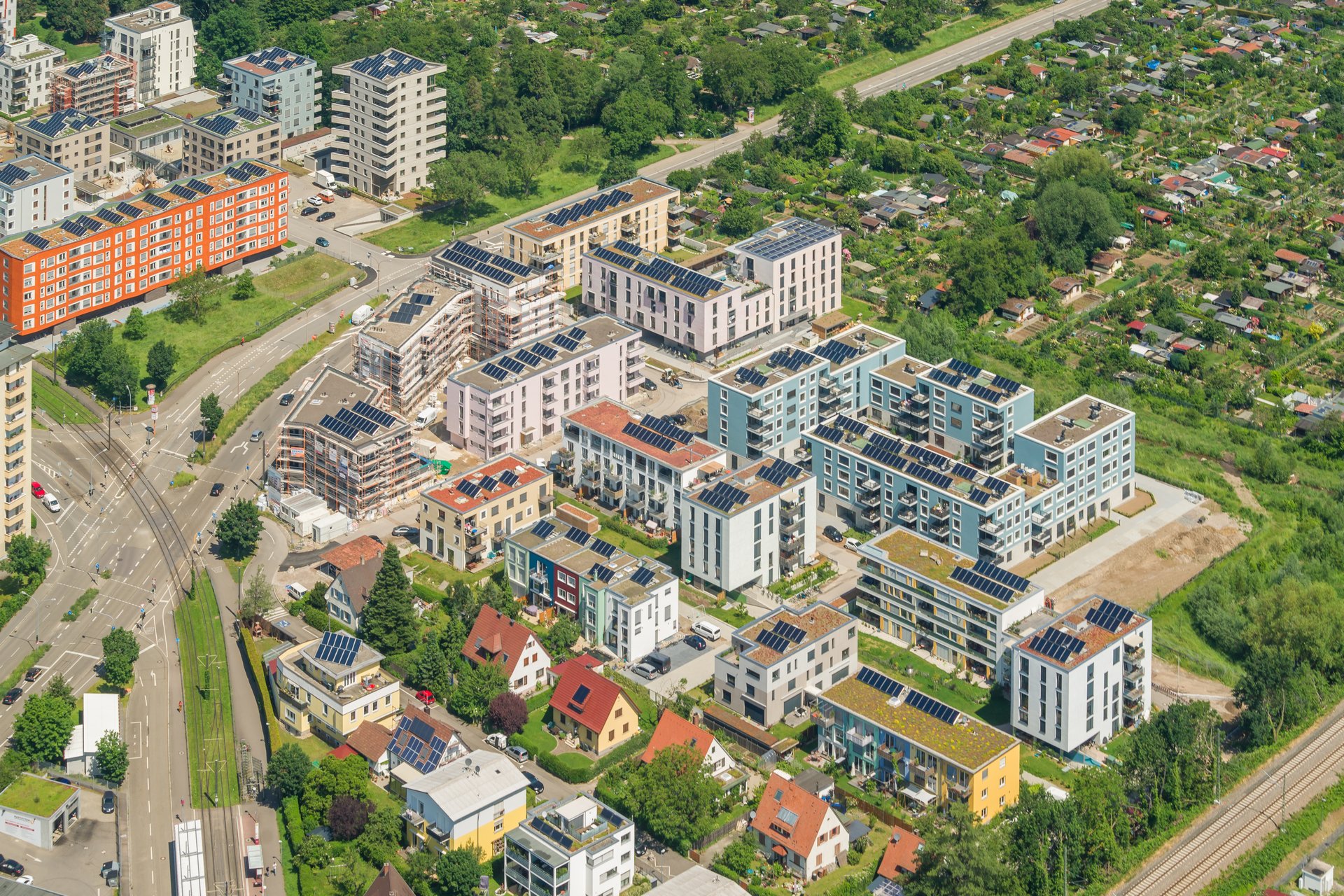In the field of "Building Systems Technology", we at Fraunhofer ISE deal with the system integration of innovative heating and cooling supply (conversion and transfer) as well as ventilation technology in buildings and neighborhoods. Integral planning, comprehensive quality control during implementation and effective operational analysis are the keys to energy performance throughout the entire life cycle of buildings. Our focus is on "low-exergy systems", i.e. the use of environmental heat as a heat source (outside air, ground, water, solar radiation, waste heat) and the transfer of useful energy with a low temperature range. In terms of technological implementation, heat pump systems (electrically or thermally driven) are a focal point, as is grid-connected supply via fifth-generation heating networks. They are used in both new and existing buildings.
Fluctuating and decentralized energy generation increasingly require load adjustments on the consumption side and thus the use of existing flexibility options for load shifting. Numerous new business models are currently emerging in the field of smart buildings and grid-friendly buildings: energy management gateways are used to network and control different systems; networked sensors, meters, generation plants, controllable consumers and feedback systems help with targeted energy efficiency analysis and the optimization of operational management.
Our range of services extends from planning support in the development of building and refurbishment concepts to the development of optimized model-based operating strategies and monitoring during the operating phase.
